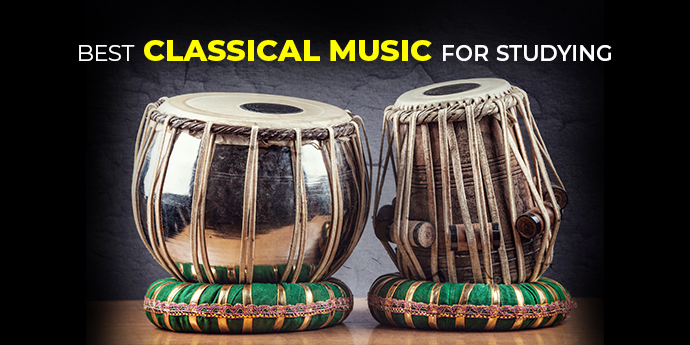
Back in the 1990s, the so-called Mozart Effect had parents nationwide rushing to introduce their children to classical music. This led to a significant revival of interest in Mozart’s music as parents sought a quick fix to create child prodigies. But like so many media-driven crazes, demand for Mozart and other classical composers faded over time, though it never disappeared completely.
While the Mozart Effect was greatly exaggerated, there are still some good reasons to consider playing classical music while studying. But what is the best classical music for studying? As we’ll see in this article, listening to classical music has several benefits, even if it won’t automatically make you an academic champion.
So, why should you study classical accompaniment? Let’s look at some of the best reasons why.
What Makes Music Classical?
To define the best classical music for studying, we must start with the definition. There are many ways to define classical music, but it primarily refers to the formal musical tradition developed in Western culture. While classical music is still being made today, classical music generally relates to compositions from the eighteenth, nineteenth, and early twentieth centuries, before the rise of popular music as the major form of Western musical expression. In short, the classical era had ended by the time we got to jazz.
The classical tradition originates in practices from the medieval period, but most scholars mark the start of classical music in the Baroque period (1580-1750). That said, classical music is broader than the Classical Period of music, which lasted from 1730 to 1820.
The Classical Period saw the rise of the most important masters of classical music, such as Mozart, Beethoven, and Haydn. But it was only one phase in the classical tradition. The succeeding Romantic Period (1800-1910) produced many of classical music’s best-loved pieces.
Baroque, Classical, and Romantic period music became lumped together as classical music after World War II. The rise of radio and recorded popular music consigned older compositions to being seen as historical rather than contemporary pieces.
The Mozart Effect on Studying
Eighteenth and nineteenth-century classical music lost its copyright protection before any of us were born, and the fact that it’s free to use has made classical compositions the default soundtrack for movies, radio shows, TV, and podcasts.
The connections between highbrow culture, the arts, and classical music helped to create an association between classical music and intelligence. Additionally, it’s closely associated with opera, an art form with connotations of privilege and wealth. By the 1990s, scientists wondered if classical music wasn’t just free music for snooty TV shows but made people smart.
A short study from 1993 saw scientists play Mozart’s music for 15 minutes before asking subjects to perform reasoning-based tasks. In the study published in the journal Nature, researchers Frances Rauscher, Gordon Shaw, and Catherine Ky asked subjects to fold the paper and complete a maze after listening to Mozart’s music.
They concluded Mozart’s music could enhance spatial reasoning for a short time after listening to it. While they emphasized that this had no implications for intelligence, the media quickly spread a false story that Mozart’s music made people smarter, a claim that eventually expanded to all classical music and an industry of companies seeking to exploit the claim.
The Mozart Effect won’t help you to study any more than any other type of music, except that the lack of vocals can keep you from getting distracted as you work. Another great way to avoid distractions while you study is to outsource your essays to a professional writing service SmartWritingService.
When you hire academic writers from a service like this to write a paper for you, you can free up time to study and learn instead of struggling to write essays. When you combine the extra time with a soothing background of classical music—anything from Beethoven to Strauss—you can relax and absorb what you’re studying.
Why You Should Study Classical Music
Now you may be wondering: If classical music doesn’t make you smarter, why should you listen to it while studying? The good news is that you can still benefit from listening to classical music during your study sessions. There are three primary benefits to studying classical music:
- Enhances your concentration: When you study, you must be able to concentrate on what you’re reading, not on the distractions happening all around you. Playing classical music can drown out external noises and other unwanted sounds so you can focus your attention on the texts you’re studying. Classical music is often the best choice for this task because most pieces are instrumental, meaning they don’t have lyrics to distract you. You might sing along to pop music, but probably not Tchaikovsky.
- Reduces stress: Listening to classical music can also help reduce stress and anxiety. Several studies have shown that listening to classical music can have measurable physiological effects, such as lower blood pressure and heart rate. The music’s rhythms and tempos can also help promote a relaxed state of mind. Just be sure you don’t become so relaxed that you fall asleep!
- Improves memory: While the Mozart Effect may not have long-term impacts on intelligence, listening to classical music can stimulate memory, at least in the short term, and may help you to retain more of what you’re studying while you’re learning it.
To conclude, I would like to say that it is very complicated to find the best classical music for studying – each student chooses his/her favorite songs, composers, and musicians.
Read Here: Classical Musician turned DJ- Alison Wonder









